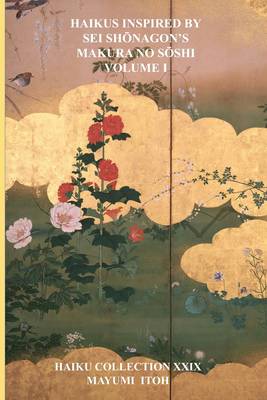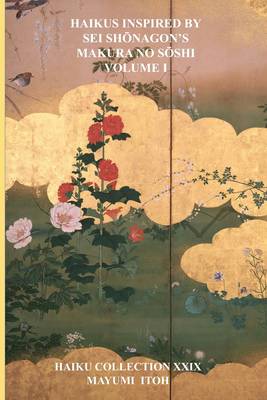
- Afhalen na 1 uur in een winkel met voorraad
- Gratis thuislevering in België vanaf € 30
- Ruim aanbod met 7 miljoen producten
- Afhalen na 1 uur in een winkel met voorraad
- Gratis thuislevering in België vanaf € 30
- Ruim aanbod met 7 miljoen producten
Zoeken
€ 14,95
+ 29 punten
Omschrijving
This bilingual haiku collection is the twenty-ninth haiku anthology originally written by this author, and was inspired by Makura no sōshi (lit., 'the pillow book'), an essay collection by the court lady Sei shōnagon (c. 966-c. 1025). Makura no sōshi is considered one of The Three Great Essays in Japanese classic literature. Sei shōnagon served Empress Teishi (née, Fujiwara no Teishi, 977-1001, married to Emperor Ichijō in 990) in the mid-Heian period. Her essay collection consists of insightful observations of the four seasons, fauna and flora, and daily life, which reflects her profound knowledge of the classical literature of both China and Japan. Other essays introduce intriguing anecdotes of courtiers in the Imperial Court in the ancient capital Kyoto, as well as her own poems. This haiku collection (2022) includes the first 66 essays out of a total of 323 essays that she wrote, along with a summary and annotations for each essay, and presents 88 original haikus by this author.
Specificaties
Betrokkenen
- Auteur(s):
- Uitgeverij:
Inhoud
- Aantal bladzijden:
- 228
- Taal:
- Engels
Eigenschappen
- Productcode (EAN):
- 9798844456879
- Verschijningsdatum:
- 9/08/2022
- Uitvoering:
- Paperback
- Formaat:
- Trade paperback (VS)
- Afmetingen:
- 152 mm x 229 mm
- Gewicht:
- 308 g

Alleen bij Standaard Boekhandel
+ 29 punten op je klantenkaart van Standaard Boekhandel
Beoordelingen
We publiceren alleen reviews die voldoen aan de voorwaarden voor reviews. Bekijk onze voorwaarden voor reviews.











